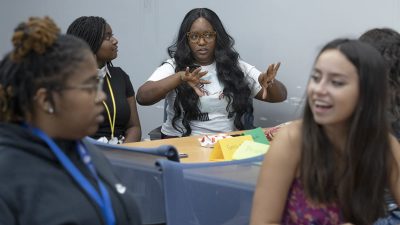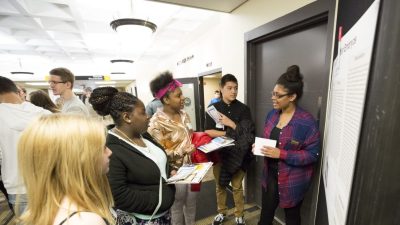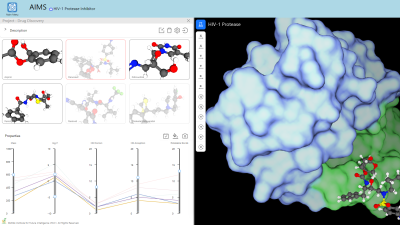Positive STEM Experiences for Underrepresented and Rural 6-12th Graders: A Novel Approach to Pre-Collegiate Neuroscience using a Train-the-Trainer Model, Summer Immersion, and Sustained Mentorship
-
Project Description
The proposed research is relevant to future applications of and innovations in neuroscience because it seeks to open the field to more people from diverse backgrounds by providing meaningful, reinforcing experiences and a supportive network for underrepresented, minorities, disadvantaged and/or disabled, and rural 6th-8th grade students as they explore potential opportunities in neuroscience. In the proposed work, we will lead students through multiple neuroscience programs, including a novel curriculum, a summer immersion camp, and a year-long mentorship program, and in doing so we will integrate three forms of engagement experiences into a single synergistic and cohesive engagement ecosystem for participants to better envision a future for themselves in higher education and in neuroscience more specifically. The project will support NIH’s commitments to building participation in research careers through the integration of successful yet disparate single-organization practices into a unified and longitudinal statewide model.
-
Abstract
Neuroscience research has the potential to impact wellness, learning, and mental health acceptance and care, as well as the treatment of neurological disorders for global populations. The application and impact of neuroscience innovation depends on multiple perspectives, diversity of thought, and cultural awareness. Specifically, recruiting, retaining, and training a diverse pool of highly skilled individuals in neuroscience is imperative for maximizing the impact of our research and education. However, the effort is compromised by existing race and ethnicity imbalances in the field. Despite many national efforts, underrepresented minorities (URM) experience barriers to participation in neuroscience research. In this proposed work, we will target middle school aged youth, as these years are a critical time in youth’s identity, self-concept, and accomplishment orientation formation processes, which will play a significant role in shaping their experience in community, school, work, and life. The primary goal of this proposal is to provide meaningful, reinforcing experiences and a supportive network for URM 6th-8th grade students as they explore potential opportunities in neuroscience. We will do this by integrating successful yet disparate single-organization practices into a unified and longitudinal statewide model. Our proposal incorporates and expands upon our team’s past success in (1) creating and delivering a novel neuroscience curriculum to be delivered statewide through Minnesota in a “Train-the-Trainer” model that will create a new generation of neuroscience educators, (2) creating and executing an immersive neuroscience summer camp for interested youth to help them begin to take steps toward aspiration achievement that include relying on supports, navigating barriers, and reimagining what is possible for them, and (3) developing a year-long mentorship program aimed at diversifying the field of neuroscience through underrepresented mentors connecting and forming long-term bonds with underrepresented students. For the first time, we will integrate three forms of engagement experiences into a single, cohesive ecosystem for participants to better understand potential synergistic benefits of multiple modes of engagement for students. We believe that these consistent and reinforcing experiences provide the next generation of underrepresented minorities, disadvantaged and/or disabled, and rural leaders a transformative opportunity for educational and research success in neuroscience fields.






